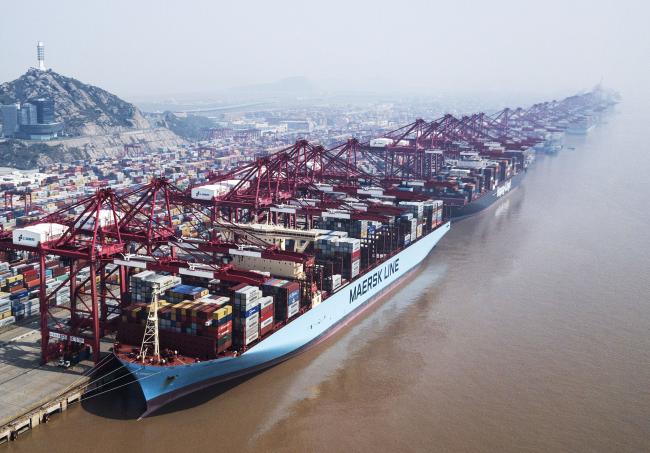(Bloomberg) -- All progress made so far in talks between with the U.S. over trade will be for nothing if President Donald Trump carries out his threat to impose tariffs, China said Sunday.
“If the U.S. rolls out trade measures including tariffs, all the agreements reached in the negotiations won’t take effect,” state-run Xinhua News Agency reported Sunday, citing a statement from the Chinese negotiators who met with a U.S. delegation led by Commerce Secretary Wilbur Ross in Beijing at the weekend.
The two sides had good talks about agriculture, energy and other sectors, with some “positive, concrete” progress, Xinhua said, adding that the details still need final confirmation from each side. China is willing to expand imports from the U.S. and other nations, it said, though the premise for any agreement is that the two sides won’t start a trade war.
The Xinhua report came after Ross met Sunday with Chinese Vice Premier Liu He for talks that Ross called “friendly and frank, and covered some useful topics about specific export items.”
Gas, Food
The U.S. delegation which was in Beijing for two days, included energy and agriculture experts, reflecting the U.S. desire to increase exports of natural gas and food in an effort to reduce the $375 billion annual deficit in goods trade with China. While the team may be inching toward technical agreement in that direction, the talks are could be overshadowed by the unpredictability of U.S. policy in the wake of recent reversals that have seen tariffs placed on metals imports by allies.
On the Chinese side, officials including Commerce Minister Zhong Shan, Central Bank Governor Yi Gang, Vice Agricultural Minister Han Jun, and Li Fanrong, vice minister of national energy administration, accompanied Liu in the talks, according to a media pool report.
During his visit, Ross has been looking to build on a vague joint statement released May 19, after negotiations in Washington. China pledged then to take steps to “substantially” reduce the U.S. trade deficit, including by buying more American farm goods and energy, though it didn’t commit to a dollar amount.
Shifting Stance
The Trump administration’s shifting stance on China may complicate Ross’s ability to extract concessions from Beijing. President Donald Trump announced that the U.S. will forge ahead with a plan to slap tariffs on $50 billion of Chinese imports just 10 days after the two reached the truce agreement in Washington. China slammed the “flip-flop,” vowing to hit back should the U.S. tariff threat materialize.
In addition to tariffs, Ross is under pressure from U.S. lawmakers to stay tough on Chinese telecom-equipment maker ZTE Corp (HK:0763). China pressed the U.S. to give ZTE a break after the Commerce Department cut off the company from U.S. suppliers to punish it for allegedly lying to American officials in a sanctions case.
Last month, Trump said he would allow ZTE to stay in business once it pays a $1.3 billion fine, shakes up its management, and provides “high-level security guarantees.” Republican Senator Marco Rubio and other lawmakers from both parties have questioned Trump’s leniency toward ZTE, arguing the company represents a security risk.
Global Stakes
The stakes are high for the global economy, which is cruising at its fastest pace of growth in seven years. But the International Monetary Fund has warned that a trade war could threaten the recovery, and policy makers are contending with a growing list of geopolitical risks, from a political crisis in Italy to the rocky progress of peace talks with North Korea.
Treasury Secretary Steven Mnuchin said Saturday the U.S. wants to see “structural changes” in the Chinese economy.
“This isn’t just about buying more goods. This is about structural changes,” Mnuchin told reporters in Whistler, Canada, at the close of a summit of G-7 finance chiefs. “If there are structural changes that allow our companies to compete fairly, by definition that will deal with the trade deficit alone.”
To contact Bloomberg News staff for this story: Jeffrey Black in Hong Kong at jblack25@bloomberg.net;Miao Han in Beijing at mhan22@bloomberg.net
To contact the editors responsible for this story: Jeffrey Black at jblack25@bloomberg.net, John McCluskey
©2018 Bloomberg L.P.
